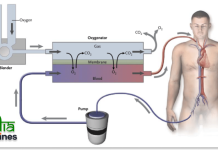
Heart surgery is a critical medical procedure aimed at addressing various cardiac issues, from coronary artery disease to congenital heart defects. As advancements in medical technology continue to evolve, heart surgery has become more precise and effective, offering hope and improved quality of life for patients worldwide. This blog provides an in-depth look at the types of heart surgeries, the preparation involved, and the recovery process.
Heart Specialist Doctor Ravinder Singh Rao. Call now to Appointment
Types of Heart Surgery
Heart surgery encompasses a range of procedures designed to treat different heart conditions. The type of surgery recommended depends on the specific cardiac issue being addressed.
Coronary Artery Bypass Grafting (CABG)
CABG is one of the most common types of heart surgery. It is used to treat severe coronary artery disease, where the coronary arteries are blocked or narrowed, reducing blood flow to the heart.
- Procedure: In CABG, a healthy artery or vein from another body part is grafted to bypass the blocked artery. This creates a new pathway for blood to flow to the heart muscle.
- Indications: Patients with severe angina, multiple blocked coronary arteries, or those who have not responded to other treatments may benefit from CABG.
Heart Valve Repair or Replacement
Heart valve surgery is performed to repair or replace damaged heart valves that are not functioning properly.
- Procedure: Depending on the condition, the surgeon may repair the valve by reshaping it or patching holes, or replace it with a mechanical or biological valve.
- Indications: Conditions like valve stenosis (narrowing) or valve regurgitation (leakage) often necessitate this surgery to ensure proper blood flow through the heart.
Aortic Aneurysm Repair
An aortic aneurysm is an abnormal bulge in the wall of the aorta, the largest artery in the body. If left untreated, it can rupture and cause life-threatening bleeding.
- Procedure: The surgery involves removing the weakened section of the aorta and replacing it with a synthetic graft.
- Indications: This surgery is typically recommended for large or rapidly growing aneurysms, or if the aneurysm is causing symptoms.
Arrhythmia Surgery
Arrhythmias are irregular heartbeats that can lead to various complications. Surgical intervention may be necessary when medication and other treatments fail.
- Procedure: Procedures like maze surgery involve creating a series of controlled scars in the heart tissue to disrupt abnormal electrical pathways.
- Indications: Severe or life-threatening arrhythmias, such as atrial fibrillation or ventricular tachycardia, often require surgical intervention.
Congenital Heart Defect Surgery
Congenital heart defects are structural issues present at birth that affect the heart’s function.
- Procedure: The type of surgery varies depending on the specific defect, ranging from simple hole closures to complex reconstructions.
- Indications: Infants and children with severe congenital heart defects that impair heart function or growth typically undergo these surgeries.
Preparing for Heart Surgery
Preparation for heart surgery is a crucial phase that involves physical, psychological, and logistical considerations to ensure the best possible outcome.
Medical Evaluation
Before the surgery, a comprehensive medical evaluation is conducted to assess the patient’s overall health and identify any potential risks.
- Tests: Common tests include blood tests, chest X-rays, electrocardiograms (ECG), echocardiograms, and cardiac catheterization.
- Consultations: Patients typically meet with the surgeon, cardiologist, and anesthesiologist to discuss the procedure, potential risks, and expected outcomes.
Lifestyle Adjustments
Patients may need to make certain lifestyle changes to optimize their health before surgery.
- Smoking Cessation: Smoking can impair healing and increase surgical risks. Patients are advised to quit smoking well before the surgery.
- Diet and Exercise: Adopting a heart-healthy diet and maintaining regular physical activity can improve surgical outcomes and overall health.
Psychological Preparation
Heart surgery can be a daunting prospect, and addressing emotional and psychological concerns is essential.
- Counseling: Speaking with a counselor or joining a support group can help alleviate anxiety and provide a sense of community.
- Education: Understanding the procedure, recovery process, and potential outcomes can help patients feel more prepared and less anxious.
The Heart Surgery Process
Heart surgery typically follows a structured process to ensure patient safety and successful outcomes.
Pre-Operative Phase
On the day of surgery, patients undergo several preparatory steps.
- Fasting: Patients are usually required to fast for several hours before the surgery to reduce the risk of complications.
- Preparation: The surgical team prepares the patient by administering anesthesia, inserting intravenous lines, and monitoring vital signs.
Surgical Phase
The specifics of the surgical phase vary depending on the type of heart surgery being performed.
- Incision and Access: The surgeon makes an incision in the chest to access the heart. In some cases, minimally invasive techniques may be used.
- Procedure: The surgeon performs the necessary repairs or replacements, such as bypassing blocked arteries or replacing a damaged valve.
- Monitoring: Throughout the surgery, the patient’s vital signs are closely monitored to ensure stability.
Post-Operative Phase
After the surgery, patients are moved to the intensive care unit (ICU) for close monitoring.
- Recovery: Initial recovery in the ICU involves managing pain, monitoring for complications, and ensuring the heart is functioning properly.
- Rehabilitation: Patients gradually transition to less intensive care and begin cardiac rehabilitation to restore strength and improve cardiovascular health.
Recovery and Rehabilitation
Recovery from heart surgery is a gradual process that requires careful management and support.
Immediate Post-Operative Care
The first few days after surgery are critical for recovery.
- Monitoring: Continuous monitoring of heart function, wound healing, and overall health is essential.
- Pain Management: Effective pain management strategies help patients stay comfortable and facilitate healing.
Home Recovery
Once discharged from the hospital, patients continue their recovery at home with specific guidelines.
- Activity Restrictions: Patients are advised to avoid strenuous activities and heavy lifting until cleared by their doctor.
- Follow-Up Appointments: Regular follow-up appointments with the healthcare team ensure that recovery is progressing well and any issues are promptly addressed.
Cardiac Rehabilitation
Cardiac rehabilitation is a structured program designed to help patients recover and improve their cardiovascular health.
- Exercise: Supervised exercise sessions gradually build strength and endurance.
- Education: Patients learn about heart-healthy lifestyles, including diet, exercise, and stress management.
- Support: Counseling and support groups provide emotional and psychological support during the recovery process.
Long-Term Care and Lifestyle Changes
Long-term care is crucial to maintaining heart health and preventing future cardiac issues.
Medications
Patients may need to take medications to manage heart health, prevent blood clots, control blood pressure, and reduce cholesterol levels.
Lifestyle Modifications
Adopting heart-healthy habits is essential for long-term well-being.
- Diet: A diet rich in fruits, vegetables, whole grains, lean proteins, and healthy fats supports cardiovascular health.
- Exercise: Regular physical activity helps maintain a healthy weight, improve cardiovascular fitness, and reduce the risk of future heart problems.
- Stress Management: Techniques like meditation, yoga, and deep breathing can help manage stress, which is crucial for heart health.
Regular Check-Ups
Ongoing medical follow-ups are important to monitor heart health and catch any potential issues early.
- Cardiologist Visits: Regular visits to a cardiologist help ensure the heart is functioning well and any concerns are promptly addressed.
- Screenings: Routine screenings for blood pressure, cholesterol, and other indicators help manage and prevent heart disease.
Conclusion
Heart surgery is a life-saving procedure that addresses various cardiac issues, offering patients a chance at improved health and quality of life. Understanding the types of heart surgeries, preparing adequately, and following a structured recovery plan are essential for successful outcomes. By embracing lifestyle changes and long-term care strategies, patients can maintain heart health and prevent future complications. Advances in medical technology and techniques continue to enhance the effectiveness and safety of heart surgery, providing hope and healing for countless individuals worldwide.



































